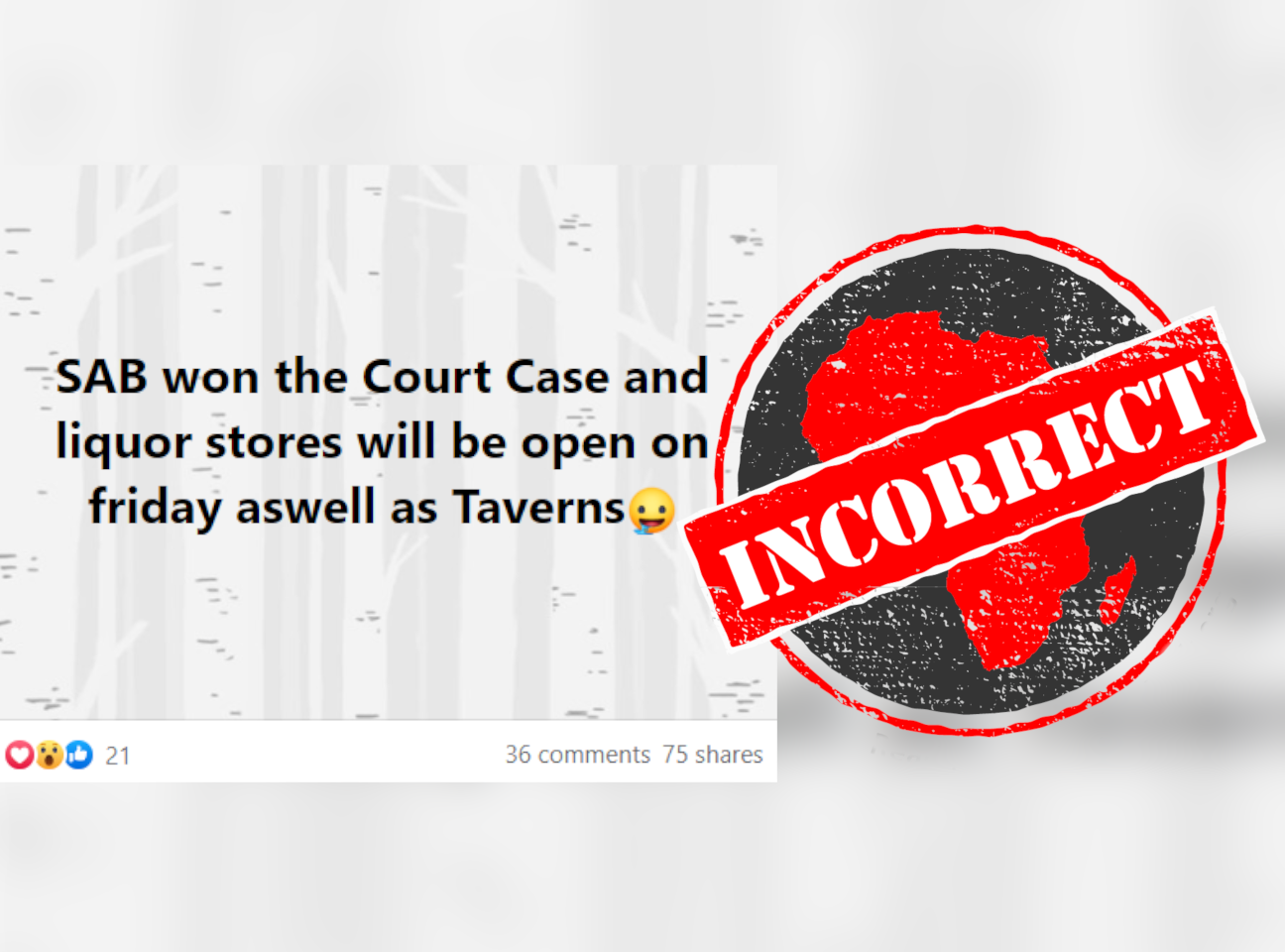South African Breweries has won its case against the government and all liquor stores will reopen “on Friday”, claim several recent messages posted on Facebook.
In late December 2020 the government introduced its third ban on the sale of alcohol to relieve the pressure of alcohol-related injuries on hospitals, as Covid-19 cases surged in the country’s second wave.
SAB took the government to court in early January to challenge the constitutionality of the blanket ban on alcohol sales. The company argued that the ban violated constitutional rights to freedom of trade and human dignity.
Did SAB win its case? And will the sale of alcohol be allowed “on Friday”? We checked.

Case still being heard in court
On 20 January the TimesLive news site reported that SAB had submitted affidavits to the Western Cape High Court, including some from restaurant owners arguing that they faced permanent closure if the alcohol ban continued.
But the government is yet to file answering papers in the case. We could find no evidence that the case has been concluded – or that SAB won.
The most recent reports on SAB cover its 25 January announcement that it would suspend 500 temporary jobs because of the effects of the ban.
President Cyril Ramaphosa announced an extension of the alcohol ban on 11 January. He said land ports would remain closed until 15 February but gave no date for the end of the alcohol ban.
There’s no evidence that the ban will be lifted on Friday 29 January.
The Facebook messages are just unsupported rumour. SAB hasn’t won its case as the matter is still being heard in court, and the alcohol ban is still in place.
Republish our content for free
For publishers: what to do if your post is rated false
A fact-checker has rated your Facebook or Instagram post as “false”, “altered”, “partly false” or “missing context”. This could have serious consequences. What do you do?
Click on our guide for the steps you should follow.
Publishers guideAfrica Check teams up with Facebook
Africa Check is a partner in Meta's third-party fact-checking programme to help stop the spread of false information on social media.
The content we rate as “false” will be downgraded on Facebook and Instagram. This means fewer people will see it.
You can also help identify false information on Facebook. This guide explains how.


Add new comment